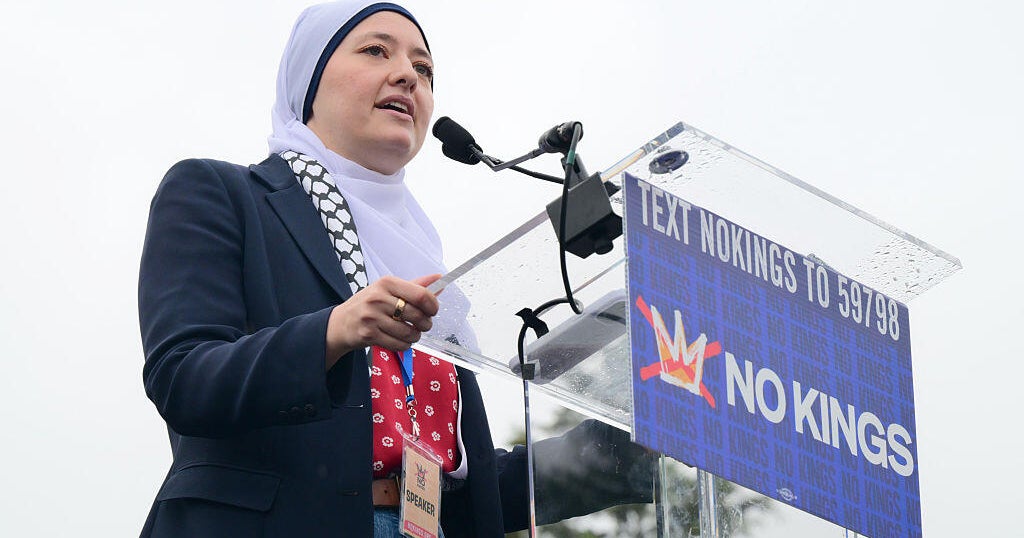Why Dean Phillips' primary challenge against Biden failed
Rep. Dean Phillips of Minnesota dropped his long-shot Democratic primary bid against President Biden Wednesday, ending a run that centered on a call for generational change and concern about losing the White House to Donald Trump.
Phillips at first staked his presidential campaign on a strong showing in New Hampshire's Democratic primary, which operated as an unsanctioned party contest where Mr. Biden wasn't even on the ballot because of the new primary calendar instituted by the president and national Democratic leaders. New England Democrats mounted a determined write-in effort for Mr. Biden, hoping to avoid an embarrassing loss. Phillips and author Marianne Williamson were also on the New Hampshire ballot.
Phillips' campaign struggled to gain traction, even though Mr. Biden wasn't on the ballot in New Hampshire, where Phillips spent most of his time campaigning.
"If Granite Staters want Joe Biden to be the nominee because they think he will beat Donald Trump, these are smart people here, and I will defer to how they feel," Phillips said before the New Hampshire primary. "But I think by not giving people a chance to even share their perspective and choose a candidate is not just a dereliction of duty. It's just downright dangerous."
But even after New Hampshire, Phillips remained in the presidential race for more than a month. The one-time member of House Democratic leadership lost overwhelmingly to Mr. Biden in a series of states — and even finished behind Williamson in some.
Soon after he launched his campaign, Phillips suffered significant staff turnover, but his biggest problem was turnout and enthusiasm in a Democratic primary in which the incumbent did not appear on the ballot. Phillips said he poured more than $5 million into his campaign but still lost to Mr. Biden in the Granite State.
At several New Hampshire campaign stops, Phillips was met with small crowds, including one where not a single voter showed up.
"I wish Americans understood that when you run for president, you're starting a business or starting your first job or going to college or going to school for the first time, sometimes it begins quietly and with difficulty," Phillips said at the time. "There are some days you have good ones, some days you have bad ones."
He also failed to win more than a few thousand votes in South Carolina and was not on the ballot in Nevada. Mr. Biden won both of these states by large margins.
In 2018, Phillips won a Minnesota swing district from a Republican, and after winning reelection in 2020, Phillips' congressional seat was redrawn and he appeared on track to hold onto the congressional post for the foreseeable future. As he began his third term, Phillips started serving a House Democratic leadership position and was viewed as a potential statewide candidate in Minnesota.
Yet, Phillips' concerns about 2024 and Mr. Biden's ability to beat Trump led him away from that path.
Phillips announced his presidential run in late October, after fueling speculation for weeks that he could enter the race and having left his House Democratic leadership role. Before running for president, he had built a reputation as a moderate congressman who embraced his work on the bipartisan Problem Solvers Caucus.
As a presidential candidate he was far more progressive, with former Bernie Sanders presidential campaign adviser Jeff Weaver playing a key role in Phillips' operation after a rocky entrance into the race.
Phillips' attention turned to the DNC and pro-Biden party leaders after he was left off the Florida and North Carolina primary ballots, telling reporters in a January press conference that it was the "most egregious affront to democracy" he'd seen.
"I criticize Donald Trump for being an insurrectionist. It's because he is. And I will tell the truth about President Biden who should be protecting democracy, he should be encouraging competition. He should be promoting debate. And he's not," Phillips said.
The blowback Phillips received from Democrats about even floating a potential challenge to Mr. Biden, let alone entering the race, has had an immense impact on his career.
National and Minnesota Democrats were dismissive of Phillips' drive before he announced it, and that criticism grew more intense as Phillips campaigned around New Hampshire and invested deeply in the Granite State.
Some leading Democrats from Minnesota called Phillips out as his campaign faced difficulties.
Democratic Sen. Tina Smith posted on social media in early November that she would support Mr. Biden, whom she referred to as "the only candidate who has actually delivered on this value with the biggest bipartisan investment in American infrastructure in decades."
Months later, as Phillips continued to struggle nationally, the bitterness between him and more prominent Democrats was apparent.
"Congratulations to Joe Biden, Uncommitted, Marianne Williamson, and Nikki Haley for demonstrating more appeal to Democratic Party loyalists than me," Phillips posted on social media after some polls closed on Super Tuesday.
And as more results came in, showing Phillips losing his own home state of Minnesota in a landslide, Phillips appeared determined to have the final word as his relevance on the national scene continued to fade.
California Democratic Gov. Gavin Newsom, a prominent supporter of Mr. Biden who could also run for president in 2028 or beyond, responded "appreciate the self awareness. Tonight's the night you should drop out and support our nominee, @JoeBiden."
Phillips simply answered, "from a self-awareness professional."




